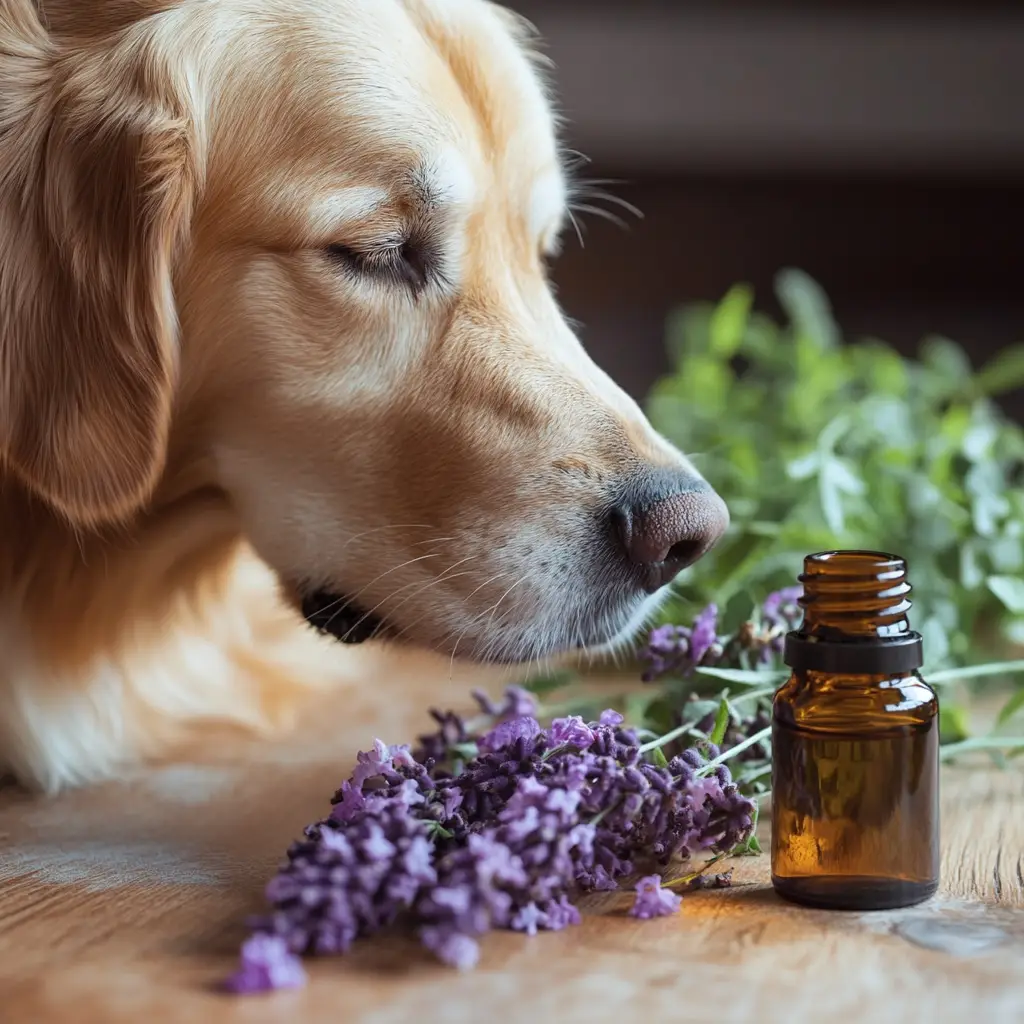Have you considered using essential oils to improve your dog’s health and well-being? Essential oils are becoming increasingly popular in pet care, but it’s crucial to know which ones are safe and which ones can be harmful. In this guide, we’ll explore the benefits of safe essential oils for dogs while highlighting those that should be avoided. By the end of this post, you’ll have a solid understanding of how to use essential oils responsibly and effectively for your furry friend.
Essential Oils for Dogs
The Growing Popularity of Essential Oils in Pet Care
Essential oils have taken the pet care world by storm. More pet owners are turning to these natural solutions to address various health issues in dogs—from anxiety and skin irritations to digestive problems.
Why It’s Important to Choose Safe Essential Oils for Dogs
Choosing the right essential oils is critical for your dog’s health. The wrong choice could lead to serious health complications, so it’s vital to be informed about what is and isn’t safe.
Understanding Essential Oils and Their Effects
What Are Essential Oils?
Essential oils are concentrated liquids extracted from plants. These oils capture the plant’s scent and flavor, also known as its “essence.” The extraction methods vary, but steam distillation and cold pressing are the most common.
How Essential Oils Affect Dogs
Essential oils interact with canine physiology through inhalation, topical application, or ingestion. These interactions can either benefit or harm your dog, depending on the oil’s properties and how it’s used.
Safety Considerations for Using Essential Oils with Dogs
Using essential oils with dogs involves some risks. Always dilute the oils properly, avoid using them near sensitive areas like the eyes and nose, and never use them on puppies, pregnant dogs, or dogs with existing health issues without consulting a veterinarian.
7 Safe Essential Oils for Dogs
 Lavender Oil
Lavender Oil
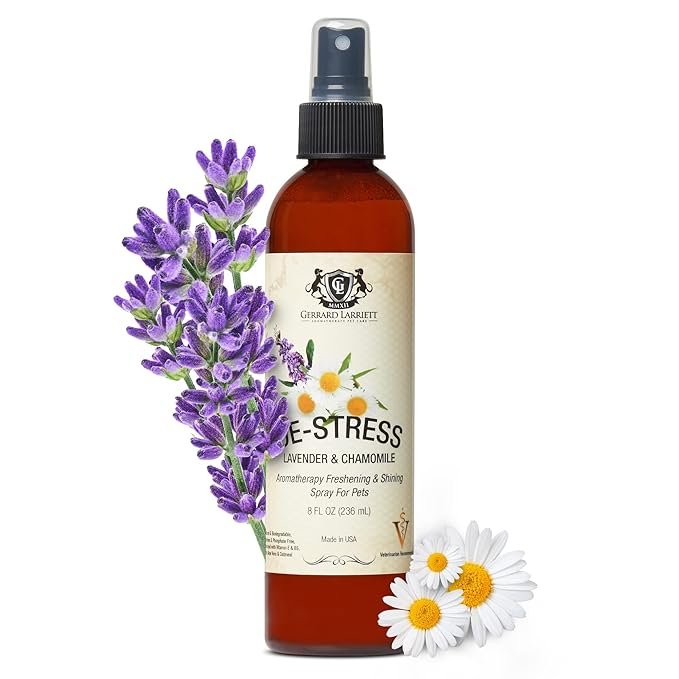
Image by [Amazon]
Lavender oil is well-known for its calming effects. It can help reduce your dog’s anxiety and improve their sleep. Diffuse it in the room or apply a diluted version to their coat.
 Chamomile Oil
Chamomile Oil
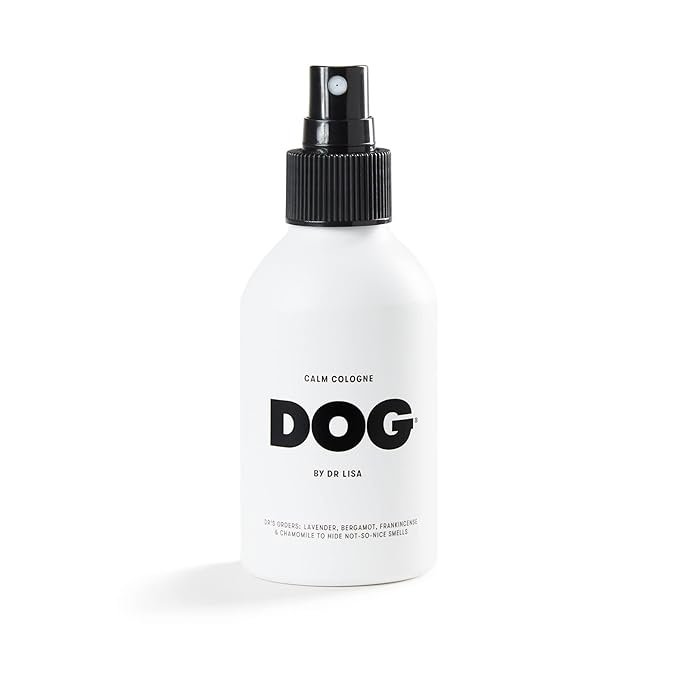
Image by [Amazon]
Chamomile oil offers soothing properties for both skin and digestion. Apply diluted chamomile oil to irritated skin or add a few drops to your dog’s collar to help with digestive issues.
 Frankincense Oil
Frankincense Oil
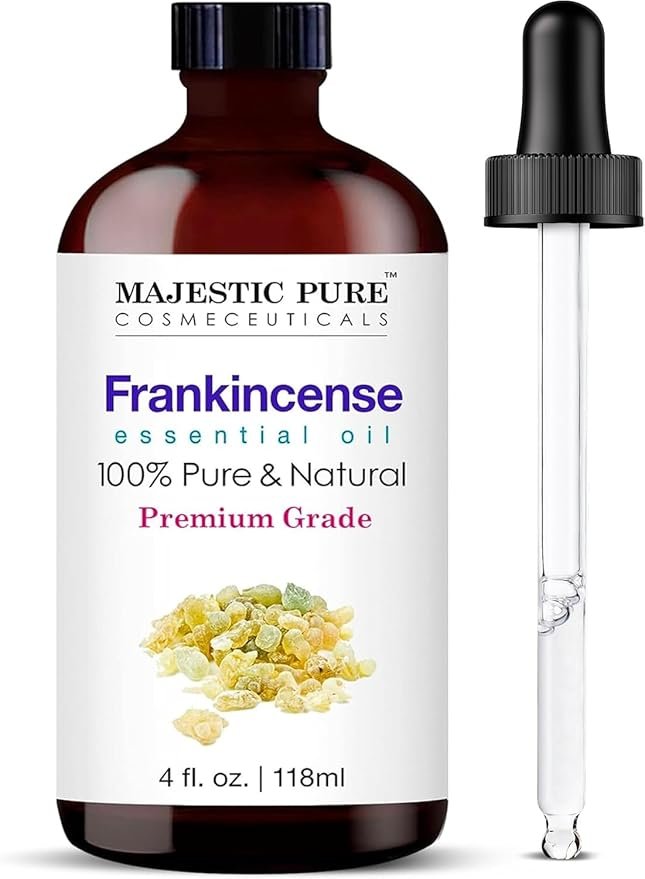
Image by [Amazon]
Frankincense oil supports the immune system and has anti-inflammatory properties. It’s beneficial for older dogs dealing with arthritis or other inflammatory conditions.
 Ginger Oil
Ginger Oil
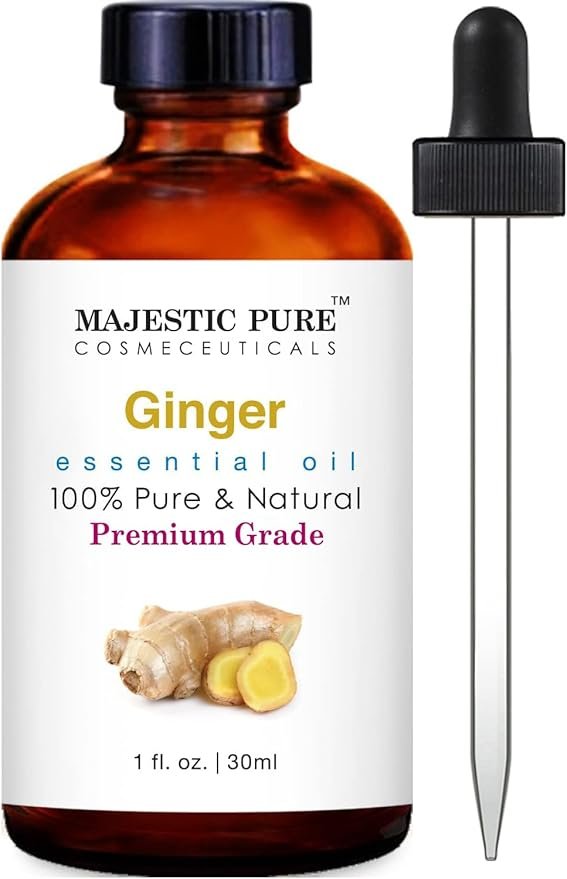
Image by [Amazon]
Ginger oil is excellent for nausea relief and digestive aid. A few drops of diluted ginger oil can soothe an upset stomach and improve your dog’s overall digestive health.
 Carrot Seed Oil
Carrot Seed Oil
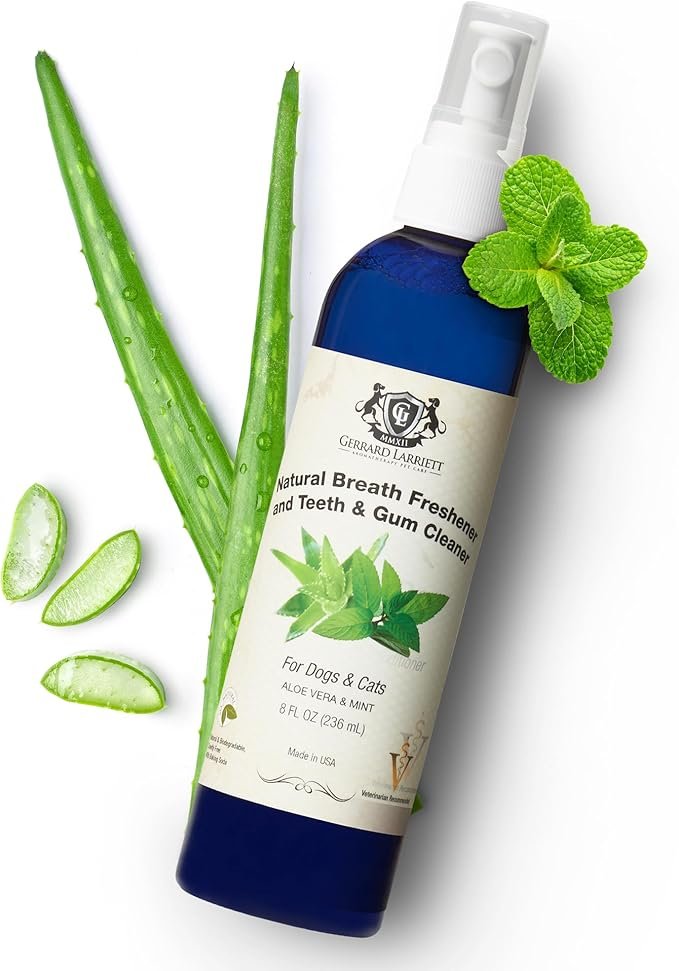
Image by [Amazon]
Carrot seed oil promotes skin health and cell regeneration. It’s ideal for treating minor wounds and improving the texture of your dog’s coat.
 Cedarwood Oil
Cedarwood Oil
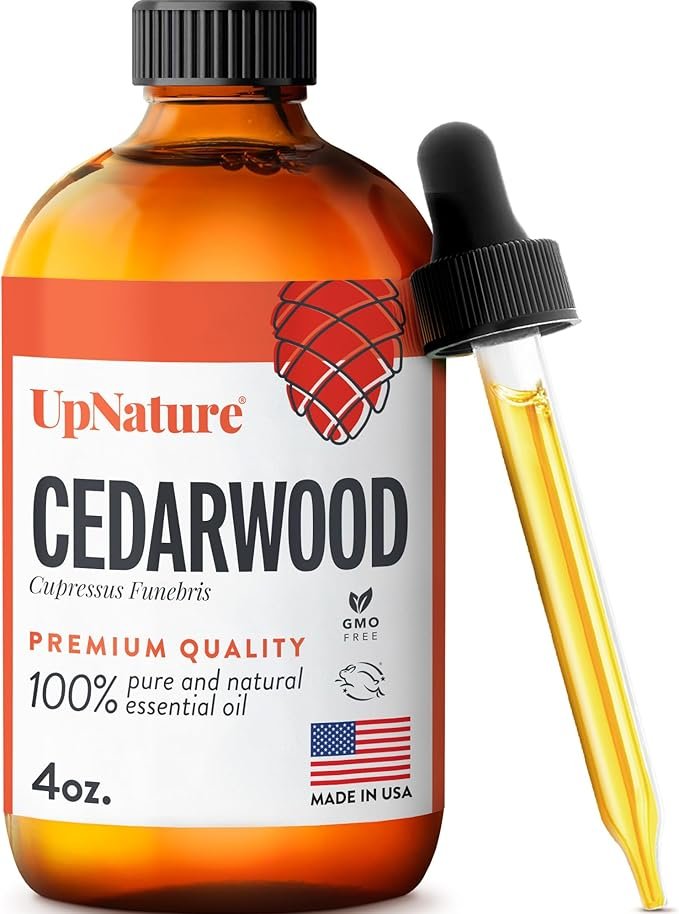
Image by [Amazon]
Cedarwood oil acts as a natural flea and tick repellent. Apply a diluted version to your dog’s collar or bedding to keep pests at bay.
 Peppermint Oil
Peppermint Oil
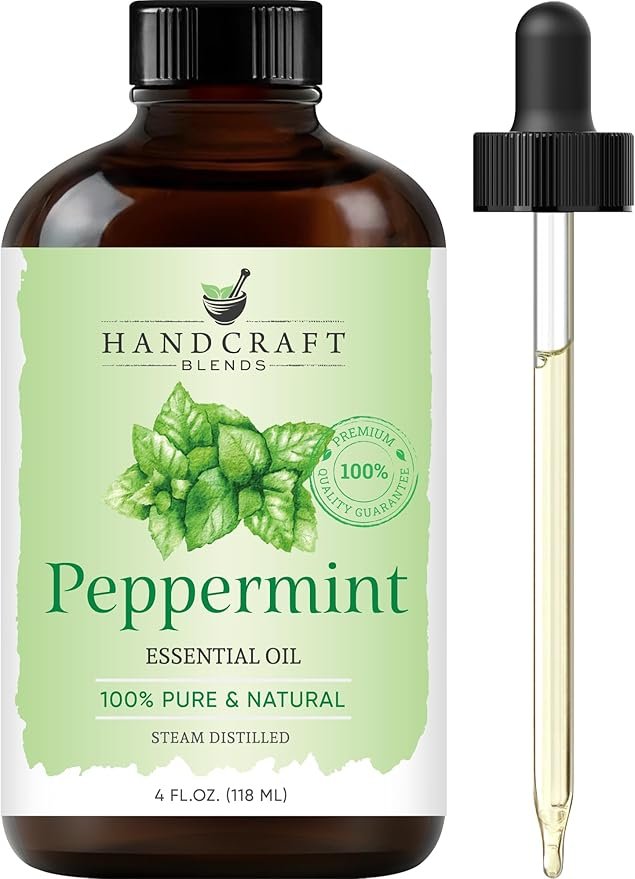
Image by [Amazon]
Peppermint oil offers pain relief and respiratory support. It’s especially useful for dogs with arthritis or respiratory issues but use it sparingly and in a well-ventilated area.
12 Essential Oils to Avoid for Dogs
1) Tea Tree Oil
Tea tree oil is toxic to dogs and can cause severe adverse reactions, including tremors and ataxia. Avoid using it in any form.
2) Eucalyptus Oil
Eucalyptus oil can cause respiratory issues and gastrointestinal distress in dogs. It’s best to steer clear of this oil entirely.
3) Citrus Oils (e.g., Lemon, Orange)
Citrus oils can be toxic and irritating to a dog’s skin and digestive system. These oils should be avoided to prevent any adverse reactions.
4) Wintergreen Oil
Wintergreen oil is highly toxic and can cause severe liver damage. Keep it far away from your dog.
5) Cinnamon Oil
Cinnamon oil can lead to skin sensitivity and gastrointestinal issues. It’s best to avoid using this oil around dogs.
6) Clove Oil
Clove oil is another toxic essential oil that can cause organ damage. Refrain from using it for any canine treatments.
7) Ylang Ylang Oil
Ylang-ylang oil can cause neurological and gastrointestinal reactions in dogs. It’s not safe for use in any capacity.
8) Juniper Berry Oil
Juniper berry oil poses a risk of kidney toxicity and urinary issues. Avoid using this oil on or around your dog.
9) Sage Oil
Sage oil can lead to hormonal imbalances and seizures. This oil is not recommended for use with dogs.
10) Thyme Oil
Thyme oil can irritate the skin and cause gastrointestinal distress. It’s best to keep this oil away from your canine friend.
11) Oregano Oil
Oregano oil can lead to severe gastrointestinal issues and liver toxicity. Avoid using it in any form.
12) Anise Oil
Anise oil poses neurological risks and potential toxicity for dogs. Steer clear of this oil for any canine applications.
How to Safely Use Essential Oils with Dogs
Dilution and Application Methods
Always dilute essential oils before applying them to your dog. Use a carrier oil like coconut or olive oil to ensure the essential oil is safe for your dog’s skin. Apply to less sensitive areas like the back of the neck or the base of the tail.
Signs of Adverse Reactions
Monitor your dog for any signs of adverse reactions, such as excessive drooling, vomiting, or changes in behavior. If any of these symptoms occur, discontinue use immediately and consult your vet.
Choosing Quality Essential Oils
Opt for high-quality, therapeutic-grade essential oils. Check labels for purity and avoid oils with added chemicals or synthetic ingredients.
Alternative Natural Remedies for Dogs
Herbal Treatments
Herbs like chamomile, calendula, and turmeric offer various health benefits for dogs. These can be used as alternatives or complements to essential oils.
Homeopathy
Homeopathic remedies can support canine health and are generally safe when used correctly. Consult a professional for recommendations tailored to your dog’s needs.
Dietary Supplements
Supplements like omega-3 fatty acids, glucosamine, and probiotics can complement essential oil use and improve overall health.
Conclusion
Essential oils can offer numerous benefits for dogs, but it’s crucial to choose the right ones. By understanding which oils are safe and how to use them properly, you can enhance your dog’s health and well-being. Always consult your vet before introducing new treatments and stay vigilant for any adverse reactions. For more personalized advice, consider booking a consultation with a pet care specialist.
Frequently Asked Questions
How can I tell if an essential oil is safe for my dog?
Always consult your veterinarian before introducing any essential oils. Look for therapeutic-grade, pure oils without added chemicals.
What should I do if my dog has an adverse reaction to an essential oil?
Discontinue use immediately and consult your veterinarian. Provide fresh water and keep the dog in a well-ventilated area.
Can essential oils be used for all dog breeds and sizes?
Not all essential oils are suitable for every breed or size. Consult your veterinarian for breed-specific advice.
Are there essential oils that are universally safe for all dogs?
While some oils like lavender and chamomile are generally safe, it’s always best to consult your vet for personalized recommendations.
How can I incorporate essential oils into my dog’s wellness routine safely?
Start with diluted oils and monitor your dog for any adverse reactions. Use sparingly and consult your vet for guidance.

